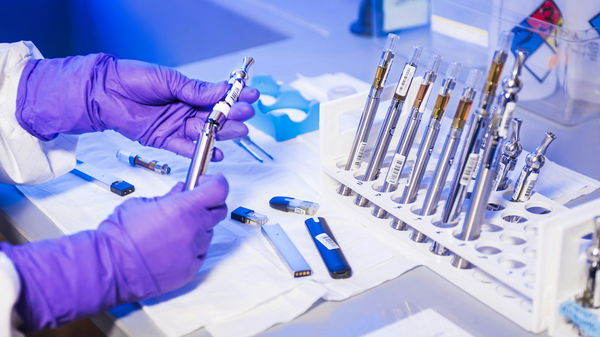

Peptides are becoming increasingly popular, especially in professional bodybuilding. BPC-157, an experimental peptide, has taken center stage as a potential game changer for healing injuries and muscle recovery. Many believe that it could revolutionize the treatment of severe injuries.
Pro bodybuilders looking to do away with chronic aftereffects of past injuries and optimize recovery are also interested in using BCP-157. Like almost all other peptides, this one seems to have no side effects like ste***ds which makes it enticing for competitive bodybuilders. So, what is BPC-157?
ADVERTISEMENT
Article continues below this ad
What does the peptide do?
BPC-157 is a peptide created from a protein found in the stomach acid. BPC is the abbreviated form of Body Protecting Compound, and the number 157 signifies its unique sequence in the source protein. The peptide’s functions also align with its name since it claims to boost healing and recovery exponentially.
Studies have found BPC to promote rapid healing in muscles, tendons, and ligaments. The peptide also speeds up tissue repair by boosting fibroblast activity, which helps form new connective tissue. It also increases angiogenesis, which boosts the growth of new blood vessels in the injured muscle.

BCP-157 has yielded exceptional results in lab tests. However, there’s a huge catch. All major studies that show the peptide to be incredibly beneficial for healing and recovery performed experiments on lab animals. Since the compound is new and experimental, researchers have not yet conducted large-scale studies on humans.
That doesn’t mean people haven’t used the peptide. Like most other peptides, people have got their hands on BPC-157. Most people who have used BCP-157 have reported results that match those found in lab tests. While those testimonies are anecdotal, many in the bodybuilding community have begun experimenting on themselves.
How does BCP-157 help bodybuilders?
Thomas DeLauer- a bodybuilder, celebrity fitness and nutrition expert, and fitness influencer has started experimenting with the peptide. In his video on BPC-157, DeLauer explained that he started experimenting with it because of the associated healing and recovery claims.
DeLauer also called the literature surrounding the compound “interesting,” before delving into details. While he acknowledged that nearly all major studies with BPC-157 were conducted on animals, he consulted with an expert before using the peptide. “Personally, I beat the heck out of my body,” confessed the fitness coach.

He also admitted to suffering injuries and the long-lasting effects of those injuries. “I have issues with my labrum, I broke my scapula at one point… I have L4, L5, ruptured discs,” said DeLauer. He developed “scar tissue” while healing from those injuries which impinged muscle function.
Thomas Delauer hopped on BPC-157 since it claimed to help with every issue he mentioned. The fitness coach said he experienced significant improvements after using the peptide for only a week. However, the fitness and nutrition expert reminded that it was strictly an experiment, and for good reason.
Is the peptide safe?
While BCP-157 is legal for testing, it has not been officially deemed safe for human use yet. Bodybuilders looking to use it to heal chronic or severe injuries and recover faster from brutal training sessions will also find themselves penalized in drug-tested contests. The World Anti-Doping Agency (WADA) and the United States Anti-Doping Agency (USADA) have listed the peptide as a banned substance.
These regulatory bodies will treat the peptide as a performance-enhancing drug. However, the reason WADA and USADA have banned BPC-157 is because of health risks. The official USADA website states: “There appears to be no legal basis for selling BPC-157 as a drug, food or dietary supplement.”

ADVERTISEMENT
Article continues below this ad
ADVERTISEMENT
Article continues below this ad
“There is also no legal basis for compounding pharmacies to use BPC-157 in compounded medicine,” stated USADA. The agency also cites the absence of human testing. “No one knows if there is a safe dose, or if there is any way to use this compound to treat specific medical conditions,” added USADA.
While it’s safe to say that the peptide BPC-157 is a promising compound, more testing is required for it to become viable. Interestingly, researchers have canceled or paused many large-scale human studies on the peptide. It is not clear why these studies have met such a fate. For now, it seems that BCP-157 is heading towards becoming an experimental treatment like stem cells.
ADVERTISEMENT
ADVERTISEMENT
ADVERTISEMENT
ADVERTISEMENT

